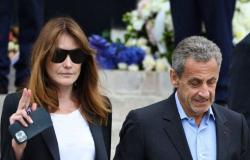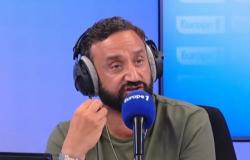
The medico-social support service for disabled adults and support for social life (Samsah-Savs), located in Brest, Quimper and Morlaix, managed by the Ildys foundation, is celebrating its 20th anniversary. For the whole of Finistère, this system offers nearly 100 places to “brain-damaged adults”, in other words in a situation of disability after an acquired or degenerative brain injury. Its purpose is to ensure the maintenance of these people in their usual family or personal environment, while allowing them to benefit from specific care and maintain real autonomy in their activities.
“It’s really a very personalized follow-up”
But, as is often the case, it is the people concerned who speak about it best. Yvan Hervé, 57, is one of the 20 people monitored by the Morlais unit, located at 3 rue Léonard-de-Vinci. His life is a long journey of successive upheavals. “I had a stroke when I was 25, another when I was 45, and another about five or six years ago. The causes seem diverse and I constantly have a sword of Damocles hanging over my head,” said the fifty-year-old, Thursday June 6, 2024.[accidentvasculairecérébral)àl’âgede25ansd’unautreà45ansetd’unautreencoreilyaàpeuprèscinqousixansLescausessemblentdiversesetj’aienpermanenceuneépéedeDamoclèsau-dessusdelatête »aracontélequinquagénairejeudi6juin2024
We benefit from medical, psychological and administrative assistance.
Yvan Hervé is today in a situation of total disability: “Fortunately, at the end of my rehabilitation at Perharidy, which also depends on the Ildys foundation, I was offered to be followed by Samsah. We benefit from medical, psychological and administrative assistance. It really is a very personalized follow-up. »
“Disability is not always visible”
For this former maintenance manager at a vacation rental center, “the hardest thing was admitting that I would never work again. So, I keep busy as a volunteer in a Pleyber-Christ association, the Repair. »
Days that appear normal, except that, “for my part, the after-effects are essentially cognitive: my memory is no longer what it was. Furthermore, I have had problems with my eyesight, but the most difficult thing is that I am tired all the time. My daily life is quite complicated, fortunately I am also very surrounded by my family. One of the most difficult things is to make people understand that disability is not always visible.”
Practical
Samsah-Savs, 3, rue Léonard-de-Vinci. Contact: tel. 02 98 45 91 95; email, [email protected]





